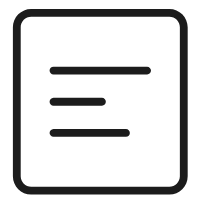一、代词定义
代替名词,形容词或数词的词就是代词。它们指人称和事物,但又不说出他们的名字,所以叫做人称代词。
二、代词的分类
1、人称代词2、物主代词3、反身代词4、相互代词5、指示代词6、疑问代词7、连接代词8、关系代词9、不定代词
1、人称代词、物主代词、反身代词
为了更清晰明了,将以上三类代词放入一个表格中呈现。
由上图可知:
人称代词:有单复数以及主格和宾格之分。
物主代词:分为形容词性物主代词和名词性物主代词。
可以这样来记:形容词性物主代词+名词(可以是单数,也可以是复数)=名词性物主代词
This book is Ann's book.That book is mine. (此时 mine=my+book)(其实使用mine这类名词性物主代词时,应该是有一定语境的,也就是在前文有提到过某个物品,这样才能使人了解“mine”是指“我的什么物品。”)
反身代词:大多数情况下是由“形容词性物主代词+self / selves ”构成。
其中比较特殊的是himself、themselves 和 itself。
himself 是由“人称代词宾格(him)+self”构成的。
themselves 是由“人称代词宾格(them)+selves”构成的。
itself 是由“人称代词主格(it)+self”构成的。
2、相互代词
英语中的相互代词只有each other和one another。
相互关系存在于两个人或物之间用each other,存在于两者以上用one another。
Ann and Gina should help each other. 安和吉娜应该互相帮助。(Ann 和 Gina 是两个人,所以用each other)Students should help one another. 学生应该互相帮助。(学生群体是两者以上,所以用one another)
3、指示代词
指示代词分单数(this / that)和复数(these / those)两种形式。
1)this 和 these一般指时间和空间上较近的人或事物,that 和 those指较远的人或事物。
These can be kept here, but you have to take that away.这些可以保存在这,但你必须拿走那一个。
2)在电话用语中,this 代表自己,that 则代表对方。
Hello! This is Mary. Is that Jack speaking? 你好!我是玛丽。你是杰克吗?
3)有时为了避免重复前面提到的名词,单数用that代替,复数用those代替。
The hat you bought is bigger than that I bought. 你买的那顶帽子比我买的大。
此时句子中 that 指代的是“my hat”。
4、疑问代词
常见的疑问代词包括表示人的 who(谁)、表示物的what(什么)、which(哪个)以及表示所有权的whose(谁的)。
Who are you? 你是谁?What did she say? 她说了什么?Which are our seats? 哪些是我们的座位?Whose book is this? 这是谁的书?
5、连接代词
连接代词主要包括 who, whom, what, which, whose, whoever, whatever, whichever等,它们主要用于引导主语从句、宾语从句和表语从句等。
Ask him which he wants. 问他要哪一个。The question is who can help us. 问题是谁能帮助我们。
6、关系代词
关系代词用来引导定语从句。它代表先行词,同时在从句中作一定的句子成分。
定语从句中的关系代词主要有:who, whom, that, which 和 whose。
The woman to whom I spoke is my aunt. 跟我说话的妇女是我姑姑。He came back for the book which he had forgotten. 他回来取他丢下的书。
7、不定代词
不定代词是不指明代替任何特定名词或形容词的代词。
英语中不定代词有:
some(something, somebody, someone, somewhere)
any(anything, anybody, anyone, anywhere)
no(nothing, nobody, no one)
every(everything, everybody, everyone, everywhere)
all, each, both, much, many, (a)little, (a)few, other(s), another, none, one, either, neither等。
Some students are cleaning the library. 一些学生正在打扫图书馆。There isn't any orange in the bottle. 瓶子里没有橘汁。







